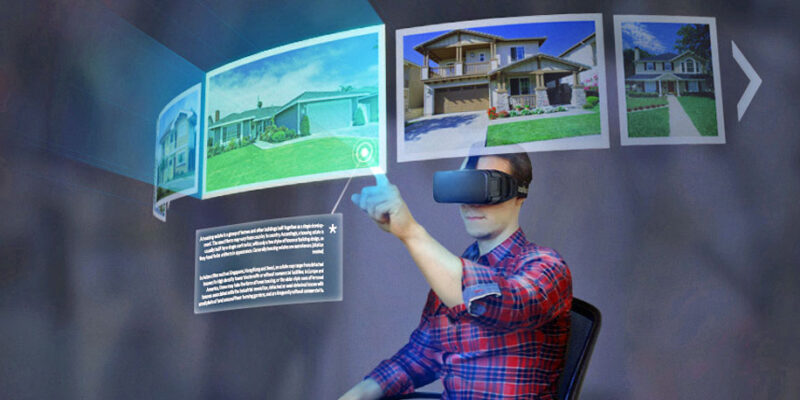If you’ve ever brought or sold a house, you know how traditional property market works. You are provided with a list of available options within your budget by a property dealer and then comes the process of negotiations and explanations and finally in-person visits to different properties until you find the perfect place to call home. Though this process is in place for decades, it has its own drawbacks and sometimes gets inconvenient and time-consuming for both buyers and sellers.
However, Virtual Reality (VR) has now come to rescue and change the way property market works. Thanks to the immeasurable capabilities of Virtual Reality, agents can now get more leads, become competitive, deliver quality services and most importantly, property buying and selling can now be redefined in a way no one experienced. Here’s our list of biggest implementations of VR in the property market.
1. Efficient Time Management
This is probably the biggest advantage. Including VR enabled tools in property saves time for both the buyers and sellers. Many companies have come up with software solutions to enable users to do a 3D tour of any place using their VR headsets, from anywhere around the globe. It implies to no time being stuck in traffic, no waiting hours and no pre-scheduled visits. All you need to do is just put your VR headsets on and you are good to go!
These days many potential buyers don’t own their own VR headsets. If that’s the scenario, their agent can get their hands on one and conduct virtual tours in their office. These virtual tours are also a life-saver in the sense that the property is always available for a visit. Homebuyers can simply tour the property at any time of the day, without worrying about its availability. So even if they are interested in JLT apartments for rent in Dubai, they can visit the property even while vacationing in Hawaii.
2. Healthy Emotional Connection
Traditional home visits are not only time-consuming but also often are done in a rush. This allows a very small chance for the potential home buyer to decide whether this property is the perfect one or not. Virtual Reality tools enable home buyers to do a 3D home tour, adding a lot to their emotional connection with the property.
Using Virtual Reality in the house hunt, potential buyers can visualize a property as if they are living there. It is far more efficient than showing them static 2D pictures as a home buyer can better visualize the surroundings and decide what they want to do with all that space.
3. Global Accessibility
Property agents know how much time is consumed in a traditional property buying/selling process. Visit scheduling, showing property and its details, negotiating terms and conditions and asking prices, conducting meetings between buyers and sellers – all these tasks are pretty much dependent on third-party and time-consuming. This doesn’t allow agents to have more than a few clients at hand.
With the advent of Virtual Reality and virtual tours, agents can live at ease by reducing the time they spend on arranging visits, hence they can have many clients at hand. With its capabilities to access data from across the globe, agents can target clients from different geographic locations, leading them to have a competitive edge among peers.
Conclusion
Virtual Reality is a game-changer in the property market. Although today, there are not many firms offering virtual tours to their clients, tech companies have already started investing capital in it and in no time, more online real estates are likely to jump in VR bandwagon.
Read Dive is a leading technology blog focusing on different domains like Blockchain, AI, Chatbot, Fintech, Health Tech, Software Development and Testing. For guest blogging, please feel free to contact at readdive@gmail.com.





